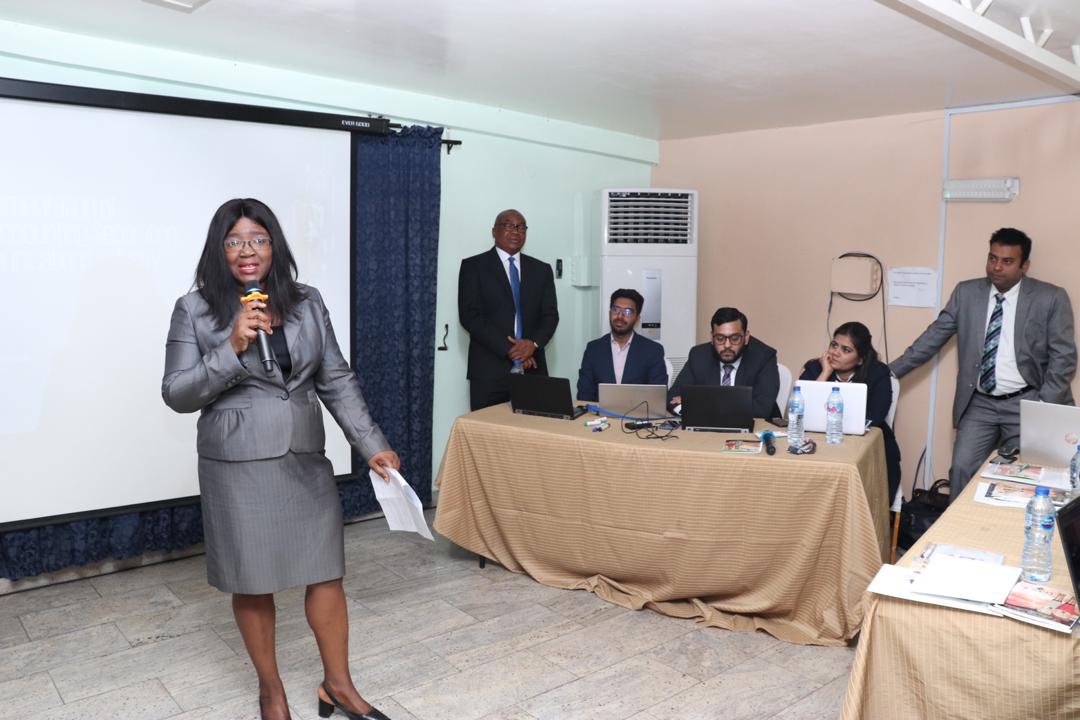The Nigerian Communications Commission (NCC), in Lagos on Tuesday flagged off a four-day workshop on operators’ capacity building on the framework for accounting separation for the Nigerian communications industry.
In his opening speech, the Executive Vice Chairman, Prof Umar Danbatta, presented by the Director, Policy, Competition and Economic Analysis, Ms. Josephine Prof Danbatta, said “In NCC, we are committed to creating an enabling environment for competition among operators in the industry in our bid at ensuring the provision of qualitative and efficient telecommunications services throughout the country.”
He said “The NCC has recognised the importance of mandating Accounting Separation within the Nigerian Communication industry and to ward off anti-competitive behaviour amongst industry operators.
“Following the tradition of the Commission to adopt global best practices on all regulatory initiatives, we engaged KPMG Professional Services to assist in the development an Accounting Separation Framework.
Continuing, Prof Danbatta, explained that “In the exercise of its regulatory functions as provided for under the Nigerian Communication Act (NCA), 2003, the Commission is considered the need for the implementing an Accounting Separation (AS) Framework which outlines the key principle and guidelines required for the reparation and submission of Regulatory Financial Statements (RFS).”
He noted that the Commission’s key objectives in implementing the AS framework is to among other things, “Provide an environment which fosters open and transparent financial reporting within the industry. And also to assist in ensuring that charges for telecommunication services are cost based, transparent and non-discriminatory; Assist the commission in the monitoring of Operators’ compliance with other regulatory obligations; Identify and prevent any undue discrimination or practices that substantially lessen competition such as cross-subsidisation, margin squeezes, etc;
Prof Danbatta also averred that the Commission aimed at averting probable issues of regulatory overlap arising from the convergence in technology and service offerings that may extend as we have seen recently, to the statutory space of other regulators.
He noted that “It is also expected that Operators will also reap strategic benefits of gaining a better understanding of unit costs, cost drivers and profitability of different services from the preparation of RFS.
NCC boss argued that “Accounting separation is a well-established practice followed by national telecom regulators across the world. It is considered to be an effective, less invasive and less costly solution to implement to meet regulatory objectives. Regulators across several jurisdictions have made it mandatory for one or more service providers in Fixed and / or Mobile markets to submit RFS.”
“The NCC has recognized the importance of mandating Accounting Separation within the Nigerian Communications industry given the changing dynamics and increasing complexities of the operations within the industry and to ward off anti-competitive behaviour amongst operators.
On the reasons behind the training workshop, NCC made it clear saying “The event is therefore the capacity building for industry operators in line with the implementation roadmap, which commenced early in the year with the refinement and update to the Framework to ensure alignment with cotemporary realities in the industry.
Business Hilights reports that participants were drawn from key segments of the Nigerian Communications industry. The workshop is expected to end on Friday, December 13, 2019.









